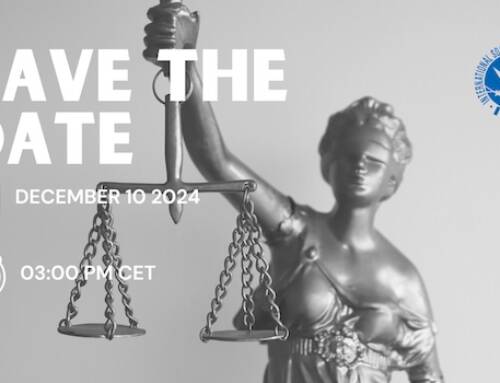Kenya


Kenya’s Maisha Namba Project: Balancing Digital Innovation with Human Rights Concerns
The massively failed Huduma Namba project has now been replaced by the Maisha Namba project, which is currently at the pilot stage. Individuals can enroll by downloading ‘Gava Mkononi App’ on their mobile and complete the registration process. Interconnected modules of Maisha Namba are Maisha Namba, Maisha Card, Digital ID, and National Population Master Register. According to government publications, Maisha Namba refers to a unique personal identifier availed to every Kenyan immediately after registration at birth. The number is thus a personal identity number given at birth and remains with an individual up until their passing.
This will be the number on every new-born baby’s birth certificate and will also act as a registration number in most government services, including admission into schools through the NEMIS system, health insurance through NHIF, and as one’s National ID number at 18 years. This Maisha Namba will also be the PIN with the Kenya Revenue Authority—KRA, NSSf, amongst others. This number will become the death certificate number when the individual passes away.
Maisha Namba contains a unique personal identifier, UPI—a random unique identifier to the individual which uses biometric data like iris scans or fingerprints to verify a person. This will help Kenyans to have one identity that allows citizens to access all Government services using a unique number: NHIF number, NSSF number, driving license number, and will be used as a death certificate number.
First-time applicants, and those replacing old national identify cards, now get the Maisha Namba as the third-generation Kenyan ID. Rolled out, which had been marred by a myriad of setbacks, was initially slated to pilot in December 2023 but was called off by a court order. In December, the High Court in Nairobi, led by Justice John Chigiti, ordered the government to stop issuing these cards. The case, brought by Katiba Institute, a human rights organization, challenged the government’s failure to put in appropriate legislation and to carry out a mandatory data protection impact assessment under Section 31 of the Data Protection Act.
Early this year, the Kenyan High Court vacated the injunction that had earlier suspended the issuance of new digital identity cards. This was in reaction to an application that the Katiba Institute filed, causing the courts to freeze the issuance of the ID cards, popularly known as Maisha Numbers, last December. It questioned the safety of the collected personal information, how it was going to review and process, and the extent of participation by the public during the process. However, High Court Judge John Chigiti has set aside the earlier order and directed that the case be transferred to the Constitutional and Human Rights Division for further hearing and determination.
Silent Launch and Implementation Challenges
Contrary to legal and public rants, the Kenya Kwanza government silently rolled out a project dubbed Maisha Namba. Since last November, Kenyans who applied for new or replacement national IDs have unexpectedly been issued with Maisha Namba IDs. The shift has not been otherwise communicated by the government, and many, in fact, were surprised and confused by this new ID.
It attests to the extent of the backlog in applications when the office that changes national identity cards issues a statement that says, without any ambiguity, this is leading to delays and putting in abeyance the issuing of ID cards to many applicants who requested replacements many months ago. It is still not clear how this delay relates to the rollout of Maisha Namba.
The quiet roll-out has increased the frustrations Kenyans face while trying to acquire different government documents, including delays in having driver’s licenses, police clearance certificates, and passports issued for the past 14 months, among others. This exposes a larger normalization of under issues with the government document processing systems.
The one most perplexing thing about the Maisha Namba ID cards is an expiry date; it’s a card that had been marketed to the public as an identification number from birth to death, yet had an expiry for its physical version. But again, more confusing is the contradiction, especially in the light that President Ruto had earlier said that after the rollout of the digital ID, there would be no necessity for a physical card for identification.
The inclusion of the expiry date has raised questions. Kenyans online have been speculating that it could be a ploy by the government to make money, seeing that updating of the card periodically would attract a fee as well. The theory may have struck a chord of reality, given that last year, the immigration department mooted increasing the cost of replacing the ID to KES 1000, a proposal it was forced to withdraw in the face of public outcry. The current fee remainsat KES 100, but there are fears that the government might reconsider the increase at another time.
However, what many still do not understand is why the government is in a rush with the Maisha Namba project—already boarded into roll-out—despite active legal contestations in courts. It is not completely unheard of that service providers in low-income countries roll out projects maybe because of a push for support and guidance by global financial institutions. However, the speed underwhich this has been implemented without due considerations to issues of legality and public concern solicited lack of planning and thorough stakeholder engagement.
Human Rights concerns
Privacy and Data Security Concerns
A key concern with the Maisha Namba project is that this centralized nature of the National Population Master Register INCREASES the risk of personal data abuse and unauthorized access. History shows that centralized databases are usually the root entry of breaches, where unauthorized persons can access very large amounts of information. Such vulnerabilities pose a potential risk to citizens’ privacy and security since, if there is exposure of data through breaches, it can be used to identify theft, fraud, cybercrime, etc.
These risks have been of concern to many civil society organizations. Without digital security measurement and comprehensive privacy practices, they say, this centralized system can create a single point of failure, allowing malicious actors to compromise or crack the entire database, potentially exposing millions of Kenyans’ personal information. It’s for this reason that the agencies will advocate for stringent measures in security and privacy practices, which ensure that no threat, either internal or external, has the possibility of accessing the data of the citizens.
Exclusion and Accessibility Issues
Indeed, the Maisha Namba system has the potential to further widen current inequalities in accessing identification documents. In the present form, approximately 5 million people of Kenya cannot easily access national ID cards due to discrimination, great distances to centers where registration is taking place, or lack of digital infrastructure. This inequality can be quite sharp for certain marginalized and minoritized communities who already suffer from deep-seated barriers to accessing government services.
This could further sideline these groups in society if the issuance of Maisha Cards is done exclusively without maintaining the availability of second-generation IDs. In case access to crucial services is pegged on having a Maisha Card, this might deny essential services like health, education, and financial services sectors to those people without the card. This shall predominantly affect people residing in rural areas, poor people, the disable, and those facing structural challenges in getting the identification documents.
Recommendations and Call to Action
Below are some recommendations from civil society organizations that could provide impetus for addressing these key challenges:
Voluntary Enrollment: Instead of making digital ID mandatory, the government should focus on enrolling people voluntarily. It would be widely accompanied by civic engagement and public awareness campaigns to let people know the benefits and uses of the Maisha Namba system. It ensures that each person has the choice to join in, hence respects their autonomy in addressing the concerns of the forced inclusion.
Imply Comprehensive Legal Framework: A comprehensive legal and data protection framework is very critical to govern the Maisha Namba project. This should ensure compliance with any constitutional mandate and international best practices concerning data protection, including ways of collection, processing, storage, and sharing, with stringent penalties that should be imposed in case of breaching both privacy and security.
Inclusive Transition Strategy: The government shall, therefore, design a transition strategy that first gives priority to any person or group of persons who do not have any form of documentation at the moment. The transition strategy must ensure that such persons be granted identity documents before the full operationalization of the Maisha Namba project. This shall go a long way toward ensuring that the government does not disadvantage the marginalized and underserved through access to important services and for fostering social equity.
Conclusion
The introduction of the Maisha Namba project in Kenya is one such landmark in the development of national identification systems meant to modernize access to government services by Kenyan citizens through a unified digital platform. Despite the rough start, marked by delays and a legal fight, the government went on with its implementation—a sure pointer to commitment to enhancing efficiency and inclusivity in public administration. The concern that the public raises on transparency, data privacy, and how this policy seems to be unduly restrictive is warranted in view of the silent launch of the whole project, including the expiry date on Maisha Namba cards.
As such, a centralized platform like the National Population Master Register raises a red flag on possible data breaches or risks. That essentially calls for very strong security measures for digital data and comprehensive safeguards for privacy. CSOs have rightly pointed out the need for a robust legal framework that would set boundaries for the Maisha Namba system and thus support compliance with constitutional rights and international standards in data protection. This Nachlese must include an inclusive transition strategy to reduce existing inequalities in access to identification documents, particularly among structurally weakened communities.
In this respect, besides the clear and timely communication of what Maisha Namba technologies are all about, going forward will mean communication through proactive engagement with stakeholders and addressing public concerns. By giving high precedence to data security, encouraging voluntary enrollment, and ensuring equity in access, trust and legitimacy in the national identification system are built by the government. This protects citizens’ rights and also paves the way for an inclusive, resilient digital infrastructure, which sets ground for achieving the preset socio-economic development goals for Kenya in the digital age.
Teddy Odira





